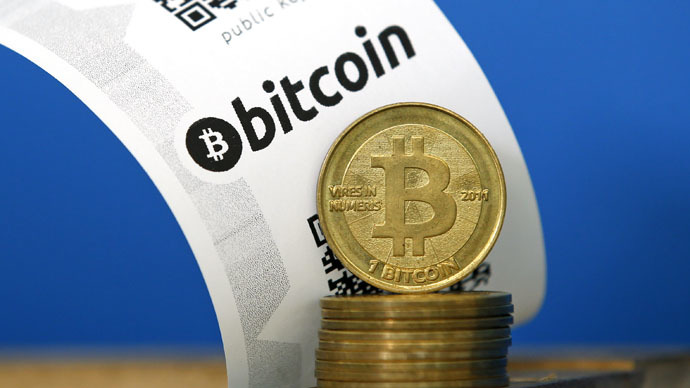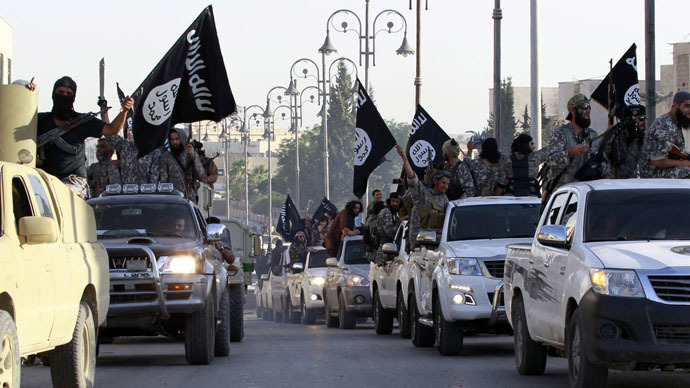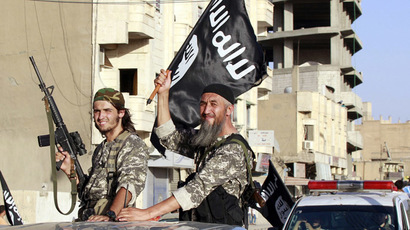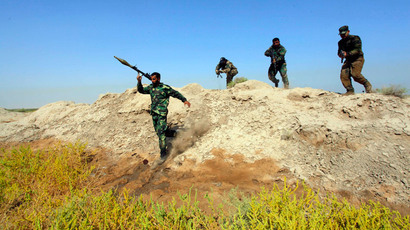ISIS fundraising in US via bitcoin – report

An Israeli cyber intelligence analyst claims that ISIS is using the dark web and bitcoin for recruitment and fundraising. Unregulated system “gaps” could indeed be exploited by terrorists seeking refuge in the anonymous network, experts say.
Haaretz newspaper quoted an Israeli analyst who said he traced an ISIS funding website and “has uncovered concrete evidence that a terror cell, purporting to be related to the Islamic State – is soliciting for bitcoins as part of its fundraising efforts.”
The fundraiser reportedly called for the support of a “new Islamic front – both in the United States, and around the world.” It allegedly called for donations to be made through various means, all of which – “besides economic support through bitcoin” – should have been done with much caution “due to the security apparatus’ recent crackdown on any and all Islamic change fronts here in the United States.”
The analyst believes the finding could be pointing to a larger, more worrying trend of terrorists taking refuge in the anonymous network, as social media websites are increasing their efforts to shut down terror-related accounts.
Jimmy Gurule, the former under secretary of the Treasury Department under George W. Bush and an international criminal law expert on terrorism and terrorist financing, told RT that the allegation is possible.
“Bitcoin is currently not regulated, and so I think that it does present a risk to moving money for criminal purposes,” said Gurule. “And I think potentially the terrorists could have found a chink in the armor, or could have found a gap in our regulatory system that they may be exploiting.”
Gurule, however, was skeptical of the claim because any US citizen or anyone residing in the US who provides financial assistance to ISIS is subject to criminal prosecution for violating the material support statute and financing terrorism.
“If you’re going to be moving money, the terrorists are going to be looking for the point of least resistance, where it’s easier and there are less criminal and legal repercussions for moving money, and that’s certainly not in the United States,” he said.
He also raised the possibility that the source or sources used in the Haaretz report – as well as in another report earlier this week in Pakistani newspaper the Express Tribune which claimed that ISIS had received funding through the US – may be giving false information in order to create a phony lead.
READ MORE: Islamic State operative confesses to receiving funding through US – report
Earlier this week, a suspected Pakistani commander of the Islamic State, Yousaf al Salafi, confessed to law enforcement agencies in Pakistan that ISIS is “getting funding – routed through America – to run the organization in Pakistan and recruit young people to fight in Syria.”

But most importantly, says Gurule, is that the Islamic State, unlike Al-Qaeda, is a self-funding organization and its principal source of funding comes from the sale of oil on the black market. ISIS also receives some money from ransom payments and extortion payments within the territory it controls.
“[ISIS] doesn’t rely on external sources of funding from sympathetic donors,” he said.
Gurule admitted, though, that “there is some concern regarding Qatar” as a source of funding for ISIS. He said it is an issue that the US government raises with the Qataris in official meetings.
At the same time there is no guarantee, he acknowledged, that money and weapons given to the “moderate” Syrian opposition by the US do not end up in the hands of ISIS, or other terrorist or Muslim extremist groups in the country.














